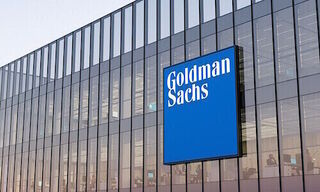Neymar, the Brazilian PSG striker, is involved in an arduous legal tussle, which includes aspects of the protection of information. A verdict by the highest Swiss court, in this case, may have an implication on the UBS tax dispute with France.
The Spanish tax authorities have been embroiled in a major case with Brazil-born Neymar for years, having started at the time when the footballer still was under contract at FC Barcelona. The case involves a sponsorship deal with the European division of Procter & Gamble (P&G), which is based in Geneva.
The case revolves around a delegation of certain rights to a Brazil-based firm, which in turn is under the control of Neymar's parents. The Spanish tax authorities have tried to establish whether that shift of rights had occurred under reasonable market conditions.
Dispute About Right for Information
The case has now reached a stage where it focuses on the question of how much data and information needs to be published. And this is where Switzerland comes into the picture, because it became the target of requests of legal assistance, according to a report by Swiss newspaper «Le Temps» (behind paywall, in French).
The federal tax authorities in October 2018 agreed to provide international judicial assistance but to no avail. P&G refused to hand over the required documents, arguing that the contracts were binding for Brazil-based firms, which therefore would have needed to be informed accordingly.
Using the Case of a Banker
The Federal Administrative Court in April 2019 repealed the legal assistance because the tax authorities hadn't warned the third party about their involvement. According to Swiss law, all involved parties have the right to defend themselves – for instance by rejecting to transmit documents.
The tax authority appealed to the highest court and was successful with its plea, according to a decision published on Thursday last week (verdict in German). The court based its ruling on a case from legal practice in financial matters: a banker, whose name is being cited in a request for legal aid in a case against a presumed tax fraudster, is worthy of protection.
Worthy of Protection
The reason being that the name of the banker plays no material role in assessing the tax situation of said client and that the civil court judge had banned the bank from passing on the name of its employee.
This means that the tax authorities aren't required to inform said Brazil-based firms because they are not worthy of protection. Hence, the court defines which interest group – the Brazil-based units or the banker in case – is worthy of protection.
Bad Omen
The verdict may affect another case, said Philippe Mantel, a lawyer, in an interview with «Le Temps»: «With the verdict, the court reflects on the status of involved parties and requests the Federal Administrative Court to assess whether P&G and the Brazil firms are parties of this case.»
Which may be a bad omen for UBS, Mantel said, because the administrative court in July had stated that the bank wasn't going to be allowed as an involved party in the yet to be decided case of legal assistance. UBS had appealed against this verdict, according to «Le Temps».
Further Verdict
It all looks as if Switzerland will eventually transmit the client data to France. UBS thus has to brace for a lengthy legal procedure in France. The bank can only appeal the verdict by the administrative court if the case has fundamental significance
In a further verdict, published Monday, the highest Swiss court argued that a bank wasn't party of a legal assistance bid from tax authorities in France, if it wasn't affected to a similar degree as the principal subject of the case.

























